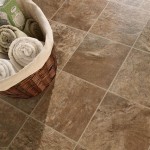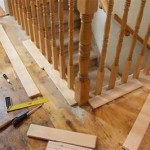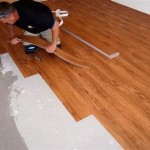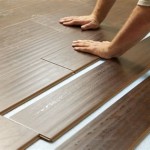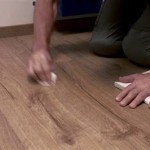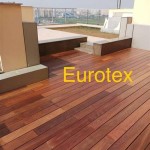Understanding Sheet Vinyl Flooring Thickness
Sheet vinyl flooring is a popular choice for residential and commercial spaces due to its durability, water resistance, and relatively low cost. A key characteristic that influences its performance and suitability for different applications is its thickness. Understanding the nuances of sheet vinyl flooring thickness is crucial for making informed purchasing decisions and ensuring satisfactory long-term results.
Thickness in sheet vinyl flooring is typically measured in millimeters (mm) or in mils (thousandths of an inch). Generally, thicker vinyl flooring offers greater durability and comfort underfoot, but it also tends to be more expensive. Therefore, selecting the appropriate thickness requires careful consideration of the specific requirements of the installation environment, including the level of foot traffic, the presence of moisture, and the subfloor conditions.
The overall thickness of sheet vinyl flooring is not the only important factor. The wear layer, which is the topmost protective layer, also plays a significant role in the flooring's resistance to scratches, stains, and wear. A thicker wear layer will generally provide better protection and extend the lifespan of the flooring, even if the overall thickness is moderate.
Key Considerations When Choosing Sheet Vinyl Thickness
Selecting the appropriate sheet vinyl flooring thickness involves evaluating several factors, each contributing to the long-term performance and suitability for the intended application. Ignoring these aspects can lead to premature wear, damage, and dissatisfaction with the flooring.
1. Level of Foot Traffic: This is arguably the most important factor to consider. Areas with high foot traffic, such as kitchens, hallways, and commercial spaces, require thicker vinyl flooring with a substantial wear layer. Thicker vinyl can better withstand the constant abrasion and impact from shoes, furniture, and other objects. Conversely, low-traffic areas, such as bedrooms or guest rooms, may be suitable for thinner and less expensive options. The frequency and intensity of activity dictate the level of protection needed from the wear layer.
2. Subfloor Condition: The condition of the subfloor significantly impacts the performance of sheet vinyl flooring, regardless of thickness. An uneven or damaged subfloor can telegraph imperfections through the vinyl, leading to premature wear and potential damage. Thicker vinyl can offer a degree of forgiveness and may mask minor imperfections in the subfloor, but it is not a substitute for proper subfloor preparation. Ideally, the subfloor should be level, smooth, and free of moisture before installation. Significant imperfections should be addressed through patching, leveling compounds, or subfloor replacement. Ignoring subfloor issues will almost certainly result in problems down the line.
3. Budget and ROI (Return on Investment): While thicker vinyl flooring generally offers superior durability and longevity, it also comes at a higher price point. It's crucial to balance the initial cost with the expected lifespan and performance requirements. In high-traffic areas, investing in thicker, higher-quality vinyl may be more cost-effective in the long run, as it will require less frequent replacement. In low-traffic areas, a thinner, less expensive option may be sufficient. Calculating the total cost of ownership, including installation and potential replacement costs, can help determine the best value proposition. Considering the life expectancy and maintenance requirements of different thicknesses can inform a more strategic budget allocation.
Different room types benefit from specific thicknesses to ensure longevity and aesthetic appeal. For kitchens and bathrooms, a thickness of 2mm to 3mm with a wear layer of 0.2mm or greater is recommended. These areas are prone to moisture and spills, necessitating a durable and water-resistant flooring option. Living rooms and bedrooms, which experience less moisture and lower foot traffic, can often accommodate thinner vinyl flooring options, such as 1.5mm to 2.5mm with a wear layer of 0.15mm or greater.
Commercial spaces typically require the thickest and most durable sheet vinyl flooring, with thicknesses ranging from 2.5mm to 4mm or even thicker depending on the application, and wear layers of 0.5mm or greater. These areas are subjected to heavy foot traffic, frequent cleaning, and potential exposure to chemicals or other harsh substances. Investing in high-quality, thick vinyl flooring is essential for ensuring long-term performance and minimizing maintenance costs in commercial settings.
Typical Sheet Vinyl Flooring Thickness Ranges
Sheet vinyl flooring is available in a wide range of thicknesses to suit various applications and budgets. Understanding the common thickness ranges and their corresponding characteristics can help narrow down the selection process and ensure that the chosen flooring meets the specific needs of the installation environment.
1. Thin Vinyl Flooring (under 2mm): This category typically includes the most affordable options and is suitable for low-traffic areas such as bedrooms, closets, or guest rooms. Thin vinyl flooring is generally easier to install and can be a good choice for DIY projects. However, it is less durable and may be more susceptible to tears, dents, and scratches. It also offers less cushioning underfoot and may not be ideal for areas where comfort is a primary concern. The wear layer is typically thinner, making it less resistant to surface damage. It is also more likely to telegraph imperfections in the subfloor.
2. Mid-Range Vinyl Flooring (2mm to 3mm): This is a versatile option that strikes a balance between durability, comfort, and cost. Mid-range vinyl flooring is suitable for moderate-traffic areas such as kitchens, bathrooms, and living rooms. It offers better resistance to wear and tear compared to thinner vinyl and provides a more comfortable surface to walk on. The wear layer is generally thicker, offering improved protection against scratches and stains. This thickness is also a good compromise for masking minor subfloor imperfections.
3. Thick Vinyl Flooring (over 3mm): This category represents the most durable and highest-quality sheet vinyl flooring options. Thick vinyl flooring is ideal for high-traffic areas such as commercial spaces, hallways, and entryways. It offers superior resistance to dents, scratches, and wear, and provides excellent cushioning underfoot. The thicker wear layer ensures long-lasting protection and makes it easier to maintain the flooring's appearance. While more expensive, thicker vinyl flooring can be a worthwhile investment for areas where durability and longevity are paramount.
It's important to note that these are general guidelines, and specific product specifications may vary. Always consult the manufacturer's recommendations and consider the specific requirements of the installation environment when selecting the appropriate sheet vinyl flooring thickness.
Impact of Wear Layer Thickness
While the overall thickness of sheet vinyl flooring is important, the thickness of the wear layer is arguably the more critical factor in determining its long-term performance and durability. The wear layer is the transparent, protective coating applied to the surface of the vinyl, designed to resist scratches, stains, and wear from foot traffic and other sources.
A thicker wear layer provides greater protection against these types of damage, extending the lifespan of the flooring and maintaining its appearance over time. The wear layer's thickness is measured in mils (thousandths of an inch) or millimeters (mm), with thicker options offering superior performance.
Wear Layer Thickness and Performance: A wear layer thickness of 6-12 mils (0.15-0.3 mm) is generally considered adequate for residential applications with moderate foot traffic. Wear layers of 12-20 mils (0.3-0.5 mm) are recommended for high-traffic residential areas or light commercial applications. For commercial environments, wear layers of 20 mils (0.5 mm) or greater are typically required to withstand the heavy foot traffic and other demands of these spaces. The thicker the wear layer, the more resistant the flooring will be to scratches, scuffs, and stains.
Maintenance and Longevity: Sheet vinyl flooring with a thicker wear layer is generally easier to maintain. It is more resistant to staining and can be cleaned with a wider range of cleaning products without damaging the surface. The thicker wear layer also helps to prevent the underlying print layer from fading or wearing away, ensuring that the flooring maintains its attractive appearance for longer. Investing in sheet vinyl flooring with a thicker wear layer can reduce the need for frequent repairs or replacements, ultimately saving money in the long run.
Testing Wear Layer Performance: One common method for evaluating the wear resistance of sheet vinyl flooring is the Taber Abraser test. This test measures the amount of wear that occurs on the surface of the flooring after a specified number of cycles under a rotating abrasive wheel. The results of the Taber Abraser test can be used to compare the wear resistance of different sheet vinyl flooring products and to determine their suitability for specific applications. Reputable flooring manufacturers will often provide Taber test results for their products.
In conclusion, understanding the significance of both the overall thickness and the wear layer thickness is crucial for selecting the appropriate sheet vinyl flooring for any project. Careful consideration of these factors will ensure that the flooring meets the specific needs of the installation environment and provides satisfactory long-term performance and value.

How Thick Is Vinyl Plank Flooring Thickness Guide Reallyfloors America S Est Hardwood

How Thick Is Vinyl Plank Flooring Thickness Guide Reallyfloors America S Est Hardwood

3 Ways To Choose Vinyl Plank Flooring Wikihow

3 Ways To Choose Vinyl Plank Flooring Wikihow

How Long Does Luxury Vinyl Tile Flooring Last Taj

Residential Vinyl Flooring Thickness 1 5mm To 8mm At Rs 60 Sq Ft In Thane

Waterproof Vinyl Flooring Buyer S Guide

Heterogeneous Vs Geneous Sheet Vinyl Flooring Lx Hausys

Sheet Vinyl Flooring Wikipedia

Luxury Vinyl Flooring Lvt And Lvp Thickness Guide Wood Beyond Blog
Related Posts

